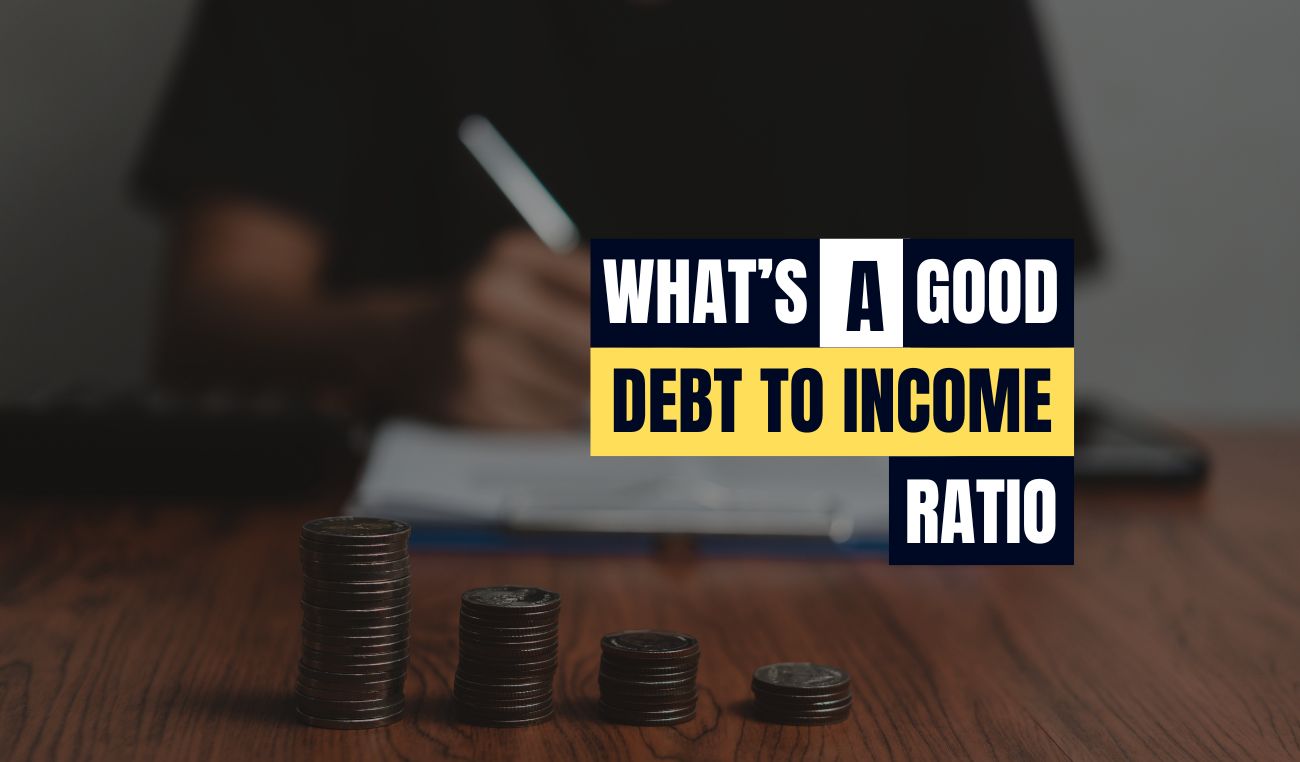When you’re dreaming of owning a home, terms like “debt to income ratio for mortgage” might sound intimidating. But don’t worry—it’s just a fancy way of figuring out if you can afford your mortgage payments.
Lenders use this number to decide whether to approve your home loan, so understanding it can make or break your home-buying journey.
In this guide, I’ll break it down step-by-step, with examples, so you can boost your mortgage affordability and sail through the loan approval process.
What Is a Debt to Income Ratio (DTI)?
Your debt to income ratio (DTI) is a percentage that compares your monthly debt payments to your monthly income. Think of it as a snapshot of your financial health. For a mortgage, lenders want to know if you’re juggling too many bills to comfortably handle a house payment.
Here’s the simple formula:
DTI = (Total Monthly Debt Payments ÷ Gross Monthly Income) × 100
- Monthly Debt Payments: Things like car loans, student loans, credit card minimums, and your future mortgage payment.
- Gross Monthly Income: Your income before taxes—think paycheck stubs or self-employment earnings.
Why Does DTI Matter for a Mortgage?
Lenders aren’t just being nosy—they use your DTI to assess loan eligibility. A lower DTI shows you’ve got room in your budget for a mortgage, while a high DTI might signal you’re stretched too thin. Most lenders prefer a DTI of 36% or less, though some allow up to 43% (or even 50% for certain loans like FHA mortgages).
Example 1: Calculating Your DTI
Let’s say Sarah wants to buy a house. Here’s her financial breakdown:
- Monthly Income: $5,000 (before taxes)
- Monthly Debts:
- Car loan: $300
- Student loan: $200
- Credit card minimum: $100
- Estimated mortgage payment: $1,200
- Total Debt: $1,800
DTI Calculation:
($1,800 ÷ $5,000) × 100 = 36%
Sarah’s DTI is 36%, which is right on the edge for many lenders. She’s likely to qualify, but she might need to shop around for the best mortgage rates.
Example 2: When DTI Is Too High
Now meet Jake:
- Monthly Income: $4,000
- Monthly Debts:
- Car loan: $400
- Credit card: $300
- Personal loan: $500
- Estimated mortgage payment: $1,100
- Total Debt: $2,300
DTI Calculation:
($2,300 ÷ $4,000) × 100 = 57.5%
Jake’s DTI is 57.5%—way above the typical 43% limit. Lenders might see him as a risky borrower unless he lowers his debt or boosts his income.
Types of DTI: Front-End vs. Back-End
Mortgage lenders often look at two types of DTI:
- Front-End Ratio: This only includes housing costs (mortgage payment, property taxes, insurance). Lenders like this to be 28% or less.
- Back-End Ratio: This includes all debts (housing plus car loans, credit cards, etc.). The magic number here is 36% or less, though some flexibility exists.
For example, if Sarah’s $1,200 mortgage is her only housing cost, her front-end ratio is:
($1,200 ÷ $5,000) × 100 = 24%—well within the safe zone.
5 Types of Mortgages Every Aspiring Homeowner Needs to Know About

How to Improve Your Debt to Income Ratio
Worried your DTI is too high? Here are practical tips to improve your mortgage affordability:
- Pay Down Debt: Tackle smaller balances first (like credit cards) to lower your monthly obligations.
- Increase Income: Pick up a side hustle or ask for a raise to boost your gross income.
- Avoid New Debt: Skip that car loan until after your mortgage is approved.
- Consider a Smaller Mortgage: A cheaper home means a lower monthly payment, dropping your DTI.
Why Lenders Care About Your Financial Health.
Your DTI isn’t just a number—it’s a clue about how well you manage money. A solid DTI can unlock better mortgage interest rates, saving you thousands over the life of your loan.
On the flip side, a high DTI might mean higher rates or even a loan denial.
What’s a “Good” DTI for a Mortgage?
- Below 36%: You’re in great shape! Most lenders will see you as low-risk.
- 36%–43%: You’re still in the game, especially for FHA or VA loans, but options might shrink.
- Above 43%: Approval gets tricky unless you’ve got stellar credit or a big down payment.
Bottom Line
Understanding your debt to income ratio for a mortgage is like holding the key to your dream home. By calculating your DTI, keeping it low, and showing lenders you’re financially ready, you’ll boost your chances of hearing “Approved!” Whether you’re a first-time buyer or refinancing, a healthy DTI is your ticket to better loan terms and peace of mind.
Ready to crunch your numbers? Use this Free Debt-to-Income Ratio Calculator to see where you stand.




